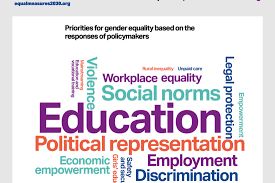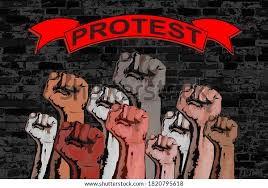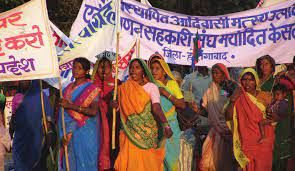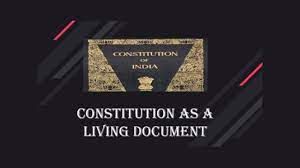- Books Name
- Social Science Book
- Publication
- Cognizance Publication
- Course
- CBSE Class 7
- Subject
- Social Science
Chapter 6
Challenges in Equality

The Indian constitution recognises all Indians are equal before the law and that no person is discriminated against because of their religion, sex, caste or whether they are rich or poor. All adults in India have equal rights to vote during elections and this power “over the ballot box” has been used by people to elector replace their representative for many years. However, the feeling of equality on the basis of ‘one vote one person’ in reality does not extend to all. Poor people face negligence and these people do not get justice in matters of health, education, etc. Domestic helpers, small farmers and many others are forced to work in hardships due to poverty and shortage of resources. People also face inequality on grounds of religion, caste and gender in India. Poverty and the lack of resources continue to be a key reason why so many peoples live in India are highly unequal. Discrimination on the basis of a person's religion, caste and sex is another significant factor for why people are treated unequally in India.
In India, it is the case that the poor consist of a majority of members of Dalit, Adivasi and Muslim communities and are often women.According to the 2011 census data, women form 48.5% of the population.Muslims form 14.2% of the population, SC's form 16.6% and STs 8.6%.
Struggles for Equality

Throughout the world, people are fighting for their rights and equality, trying to end the discriminator which they face. Women’s struggle and movements for equality was one such group fighting for equality. The Tawa Matsya Sangh in Madhya Pradesh is also an example of people coming together to fight for an issue. There are many other struggles, such as those of beedi workers, fishermen, agricultural labourers, slum dwellers, etc. who has been fighting for equality and justice. There are also many attempt to form cooperatives or other collective ways by which people can have more control over resources.
Movements and Awareness Programs
Tawa Matsya Sangh
A dam is built across the river at sites where one can collect a lot of water. This forms a reservoir and as the water collects, it submerges vast area of land. This is because the wall of the dam across the river is high and the water spreads over a large area.

When dams are built on forest areas declared centuries for animals, thousands of people are displaced. Whole villages were uprooted and people are forced to go and build new homes, start new lives elsewhere. Most of those people are poor. In urban areas too, bastis in which poor people live are often uprooted. Some of them are relocated to areas outside the city. Their work, as well as their children’s schooling is severely disrupted because of the distance from the outskirts of the city to these locations. This displacement of people and communities is the problem that have become quite widespread in our country. There are several organizations across the country fighting for the rights of the displaced.
Tawa Matsya Sangh- a federation of Fisher worker’s cooperatives that fights for the rights of forest dwellers who have been displaced from Satpura Forest located in Madhya Pradesh. With the beginning of the construction of Tawa Dam in 1958 till its completion in 1978, large part of the forest and agricultural area was submerged. Thus the forest dwellers had to suffer a setback as they earn very little. In 1994, the government gave the rights for fishing in the Tawa reservoir only to private contractors.When the contractor started exploiting the poor villages, they came together to form a union setup, an organization to protect the rights which was called Tawa Matsya Sangh. Rallies and Chakka jam were organised time and again. In response, the government granted fishing rights to the villagers in 1996. A five year lease agreement was signed two months later. On January 2, 1997, people from 33 villages of Tawa started the new year with the first catch. With the TMS taking over, the fisherworkers were able to increase their earnings substantially. This was because they set up the cooperative, which would buy the catch from them at a fair price. The cooperative would then arrange to transport and sell this in markets, where they would get a good price. They have now begun to earn three times more than they earned earlier. The TMS are also began giving the future workers loan for repair and buying of new Nets. By managing to earn higher wages as well as preserving the fish in the reservoir, the TMS has shown that when peoples organisations get their rights to livelihood, they can be good managers.
The Indian Constitution as a living document

The foundation of all movements for justice and the inspiration for all the poetry and songs on equality is the recognition that all people are equal. Movement and struggle for equality in India promotes equality. Indian Constitution is a living document recognising greater equality on existing and other issues. The Fisher workers in the Tawa Matsya Sangh hope that the provisions of the constitution will become a reality through their participation in this movement by constantly referring to the Constitution, they use it as a living document. That is something that has real meaning in our lives. In a democracy, there are always communities and individuals trying to expand the idea of democracy and push up for a greater recognition of equality on existing as well as new issues. It guarantees dignity, self respect and equality, all of which are required in a democracy.
India is a democracy and the soul of democracy is equality. But we do not see equality at any place except on the polling day on which every adult citizen of India enjoys the equal right to vote.
This is the core of the struggle for equality in a democracy, the dignity and self respect of each person in their community can only be realised if they have adequate resources to support and nurture their families, and if they are not discriminated against.

 Cognizance Publication
Cognizance Publication
